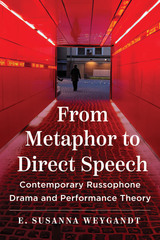Failure of Constitutional Emergency Powers under the German Republic
Harvard University Press
Cloth: 978-0-674-43813-2
See other books on: Failure | History | Watkins, Frederick M.
See other titles from Harvard University Press
Cloth: 978-0-674-43813-2
ABOUT THIS BOOK
ABOUT THIS BOOK
From ancient Rome down to the present, most constitutional states have considered it wise to provide some regular means for the suspension of normal commercial procedure in the face of temporary crises. The significance of this aspect of constitutional government is shown with particular clearness in the case of the German Republic. For the nearly fifteen years that the Weimar Constitution remained in effective operation, there was a sincere and generally successful effort to govern the Reich in accordance with liberal democratic principles; but at the same time, Germany was even more seriously subject than most constitutional countries to the strains and stresses of post-war readjustment. Nowhere was the need for emergency action more obvious, and nowhere were the means more readily available for the satisfaction of that need. To analyze and describe this particular aspect of German experience is the purpose of Mr. Watkins's study. It is an outstanding contribution to the history of modern Germany, and at the same time it provides a warning example for other countries.
See other books on: Failure | History | Watkins, Frederick M.
See other titles from Harvard University Press












